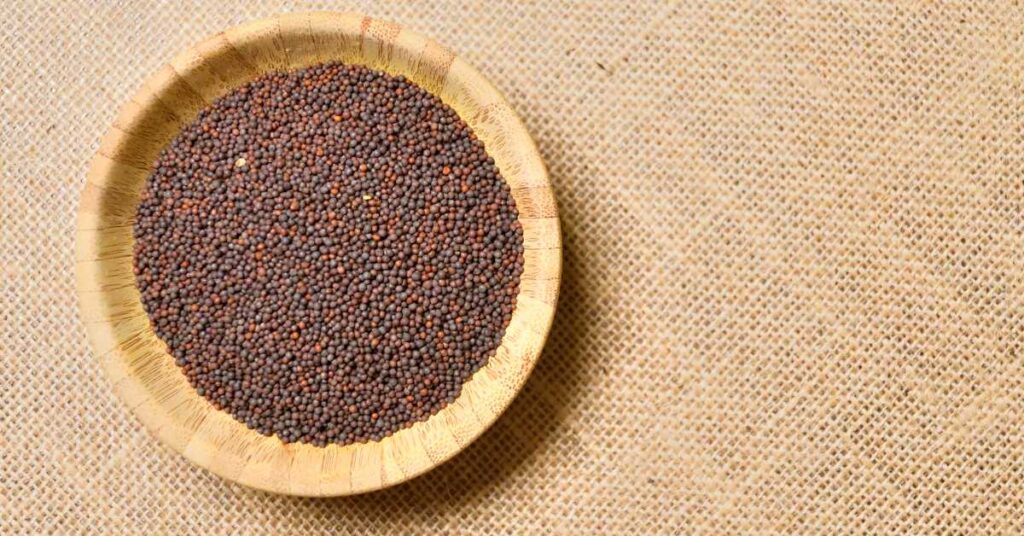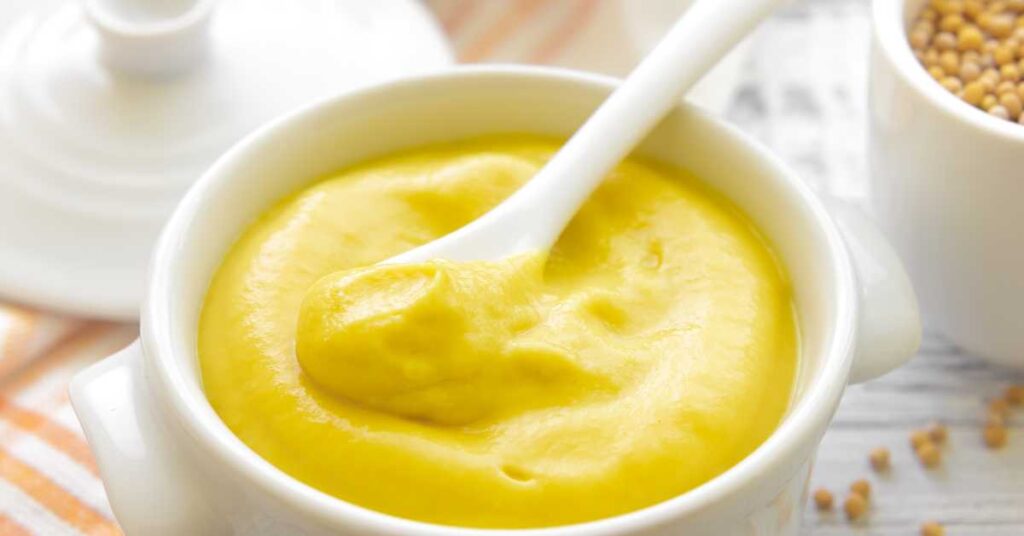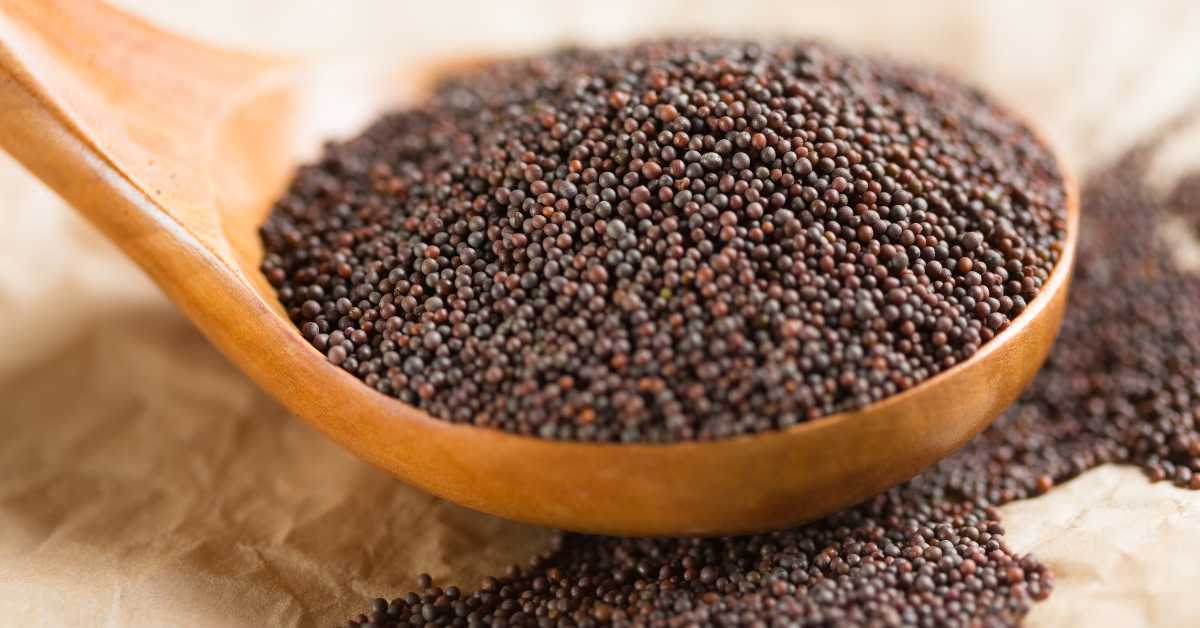As a responsible pet owner, you want to ensure that everything your dog eats is safe and beneficial. One common household condiment that might pique your curiosity is mustard. So, can dogs eat mustard? The short answer is no. Mustard is not safe for dogs to consume and can cause various health issues. In this comprehensive article, we’ll dive deep into why mustard is harmful to dogs, what happens if your dog eats mustard, and what you should do in such situations. We’ll also discuss safer alternatives and general dietary guidelines for your dog.
What Happens if My Dog Eats Mustard?
If your dog accidentally consumes mustard, several things can happen, depending on the amount ingested. Here’s a detailed look at the potential effects:
1. Gastrointestinal Upset
- Vomiting and Diarrhea: Mustard seeds contain compounds that are toxic to dogs, leading to severe gastrointestinal upset. Your dog might start vomiting or have diarrhea shortly after ingestion.
- Stomach Pain: Mustard can cause stomach cramps and pain, making your dog very uncomfortable.
2. Pancreatitis
- Inflammation of the Pancreas: High-fat condiments like mustard can trigger pancreatitis in dogs, an inflammation of the pancreas that can be life-threatening if not treated promptly.
3. Gastroenteritis
- Inflammation of the Stomach and Intestines: Mustard can cause gastroenteritis, which leads to inflammation of the stomach and intestines, resulting in symptoms like vomiting, diarrhea, and abdominal pain.
4. Dehydration
- Loss of Fluids: Continuous vomiting and diarrhea can lead to dehydration, a serious condition that requires immediate veterinary attention.
Why Is Mustard Bad for Dogs?

Mustard contains several ingredients that make it unsuitable for canine consumption:
1. Mustard Seeds
- Toxic Compounds: The primary ingredient, mustard seeds, contains toxic compounds like glucosinolates, which can harm your dog’s digestive system.
2. Salt and Spices
- High Sodium Content: Mustard often contains high levels of salt and other spices, which are not suitable for dogs and can lead to sodium ion poisoning.
3. Vinegar and Additives
- Acidity and Preservatives: The vinegar and preservatives in mustard can further irritate your dog’s stomach and cause additional digestive issues.
What to Do if Your Dog Eats Mustard

If you suspect or know that your dog has ingested mustard, follow these steps:
1. Stay Calm and Assess the Situation
- Monitor Your Dog: Keep a close eye on your dog for any immediate signs of distress or illness.
2. Contact Your Veterinarian
- Professional Advice: Call your vet and provide details about the amount of mustard ingested and your dog’s current symptoms. Follow their advice carefully.
3. Do Not Induce Vomiting
- Veterinarian Guidance Needed: Never induce vomiting unless specifically instructed by your veterinarian, as it can cause further complications.
4. Hydrate Your Dog
- Water Intake: Ensure your dog has access to plenty of fresh water to prevent dehydration.
Safer Alternatives to Mustard for Dogs
If you’re looking to add a bit of flavor to your dog’s diet, consider these safe alternatives:
1. Plain Yogurt
- Probiotics: Plain, unsweetened yogurt can be a healthy addition, providing probiotics that support digestive health.
2. Pumpkin
- Digestive Aid: Plain, canned pumpkin is great for digestion and adds a tasty twist to your dog’s meals.
3. Peanut Butter
- Protein Source: A small amount of plain peanut butter (without xylitol) is a favorite treat for many dogs.
Benefits of Avoiding Human Condiments
Sticking to dog-friendly foods has several benefits:
1. Improved Digestion
- Fewer Digestive Issues: Avoiding human condiments helps prevent gastrointestinal upset and promotes better digestion.
2. Optimal Nutrition
- Balanced Diet: Providing a diet specifically designed for dogs ensures they receive all necessary nutrients.
3. Reduced Health Risks
- Safety First: Eliminating risky foods like mustard reduces the chance of accidental poisoning and health complications.
General Dietary Guidelines for Dogs
To ensure your dog remains healthy and happy, follow these general dietary guidelines:
1. High-Quality Dog Food
- Complete Nutrition: Choose a high-quality dog food that meets all of your dog’s nutritional needs.
2. Fresh Water
- Hydration: Always provide access to fresh, clean water.
3. Regular Feeding Schedule
- Consistency: Maintain a consistent feeding schedule to help with digestion and routine.
4. Limited Treats
- Moderation: Offer treats in moderation and ensure they are specifically designed for dogs.
Understanding Canine Digestion
A brief understanding of how your dog’s digestive system works can help you make better dietary choices:
1. Short Digestive Tract
- Quick Processing: Dogs have a shorter digestive tract compared to humans, meaning food passes through more quickly, and certain foods can cause rapid irritation.
2. Lack of Certain Enzymes
- Enzyme Limitations: Dogs lack certain enzymes needed to break down human foods, which is why some foods can be harmful.
Expert Opinions on Feeding Dogs
Veterinarians and pet nutritionists emphasize the importance of a balanced diet:
1. Consult Your Vet
- Professional Guidance: Always consult your veterinarian before making any significant changes to your dog’s diet.
2. Read Labels Carefully
- Ingredient Awareness: Be diligent about reading labels to avoid harmful ingredients.
Anecdotes and Success Stories
Many dog owners have found success in transitioning to a more natural, dog-specific diet:
1. Improved Health
- Healthier Dogs: Owners report shinier coats, more energy, and fewer digestive issues after eliminating harmful human foods.
2. Happy Dogs
- Happier Pets: Dogs tend to be happier and more active when their diet is aligned with their nutritional needs.
Conclusion
In conclusion, dogs should not eat mustard due to its toxic ingredients and potential health risks. If your dog consumes mustard, it’s essential to monitor them closely and contact your veterinarian immediately. Instead of mustard, opt for safer, dog-friendly alternatives that provide nutritional benefits without the risks. By following proper dietary guidelines and seeking professional advice, you can ensure your dog remains healthy and happy.
For more information about dog food, check out our previous article: Can Dogs Eat Cilantro?.
Product Recommendations
Here are some products available on Amazon that can help you provide a safe and healthy diet for your dog:
- Blue Buffalo Life Protection Formula – High-quality dog food with essential nutrients.
Buy on Amazon - Wellness Natural Pet Food Treats – Healthy treats for dogs made with natural ingredients.
Buy on Amazon
By making informed choices and understanding the dietary needs of your dog, you can avoid potential hazards and ensure your furry companion leads a healthy and joyful life.

1 thought on “Can Dogs Eat Mustard?”
Comments are closed.